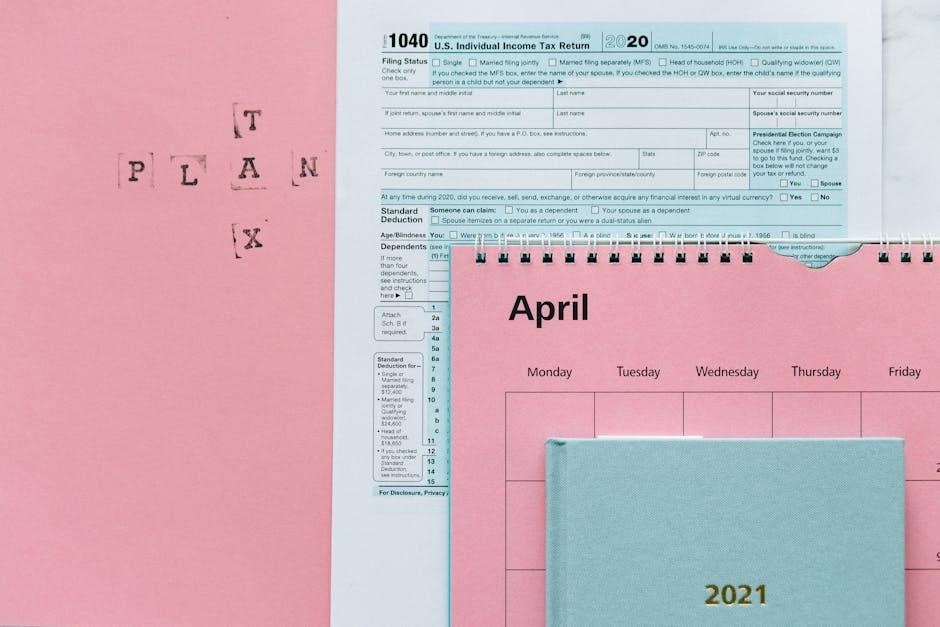A pay for delete letter is a written request to creditors or collection agencies, asking them to remove negative entries from your credit report in exchange for payment. This strategy aims to improve credit scores by eliminating derogatory marks, offering a mutually beneficial solution for both parties involved.
1.1 What is a Pay for Delete Letter?
A pay for delete letter is a formal request sent to creditors or collection agencies, asking them to remove negative entries from your credit report in exchange for paying or settling the debt. This letter serves as a debt settlement tool, aiming to eliminate derogatory marks such as late payments, collections, or defaults. By agreeing to pay, you request the creditor to delete the item from your credit history, which can help improve your credit score and overall financial standing.
1.2 Purpose of a Pay for Delete Letter
The primary purpose of a pay for delete letter is to negotiate with creditors or collection agencies to remove negative entries from your credit report in exchange for payment. This strategy aims to improve your credit score by eliminating derogatory marks, such as collections, late payments, or defaults, which can significantly lower your creditworthiness. The letter provides a formal request to the creditor, offering payment in exchange for the deletion of the negative item, thereby helping to restore your financial reputation and improve future lending opportunities.

How to Write a Pay for Delete Letter
Writing a pay for delete letter involves including your personal and account information, a clear settlement offer, and a request to remove the negative entry from your credit report. Always maintain a formal tone and ensure the letter is concise and professional.
2.1 Structure of the Letter
A pay for delete letter should follow a structured format to ensure clarity and professionalism. Begin with your contact information at the top, followed by the date and the recipient’s details. Clearly state your intention to settle the debt and request removal of the negative entry from credit reports. Include specific account details, such as the account number and amount owed. Conclude with a polite closing, providing your signature and contact information for further communication.
2.2 Key Components to Include
A pay for delete letter must include essential components to be effective. Start with your personal details, such as name, address, and contact information. Clearly state the account number and amount owed. Specify the settlement offer, detailing the agreed payment amount and the request to delete the negative entry from credit reports. Outline the payment terms, including how and when the payment will be made. Mention the deadline for acceptance and request confirmation in writing. Enclose any relevant documentation, like a payment receipt or agreement letter. Keep the tone polite and professional to encourage a positive response.
2.3 Tips for Effective Negotiation
When drafting a pay for delete letter, remain polite and professional to encourage cooperation. Clearly outline your settlement offer and specify the request for deletion. Emphasize your willingness to pay in exchange for a clean credit report. Be prepared to negotiate the amount and terms. Follow up with a phone call if necessary. Ensure the agreement is in writing to protect both parties. Avoid emotional language and focus on the mutual benefit of resolving the debt. Persistence increases the likelihood of a successful outcome.

Pay for Delete Letter Templates
Pay for delete letter templates are readily available online, offering structured formats to help draft effective letters. These templates guide users in filling in personal and account details, ensuring clarity and professionalism in their requests. Many templates are available in PDF format, making it easy to download and customize for specific situations. Using a template streamlines the process, helping individuals present their case clearly to creditors or collection agencies.
3.1 PDF Templates for Pay for Delete Letters
PDF templates for pay for delete letters provide a professional and structured format for drafting requests. These templates are easily downloadable and customizable, allowing users to input personal and account-specific details. They often include placeholders for names, addresses, account numbers, and debt amounts, ensuring clarity and precision. Many templates are designed to meet legal standards, making them reliable for negotiations with creditors or collection agencies. Using a PDF template ensures a polished appearance and helps present the request in a formal manner, increasing the likelihood of a positive response.
3.2 Where to Find Reliable Templates Online
Reliable pay for deletion letter PDF templates can be found on reputable legal and financial websites. Many platforms offer free or premium templates tailored to credit repair needs. Credit counseling agencies and legal document providers often supply customizable templates. Additionally, searching for “pay for delete letter template” or “debt settlement letter PDF” yields trusted sources. Always verify the template’s legitimacy and compliance with credit laws before use to ensure effectiveness in negotiations with creditors.

Examples of Pay for Delete Letters
Examples of pay for delete letters are available online, offering customizable templates that guide individuals in drafting effective letters to creditors for debt removal purposes.
4.1 Sample Pay for Delete Request
A sample pay for delete request typically includes the sender’s information, date, creditor’s details, and account specifics. It politely requests the removal of negative entries in exchange for payment. For example:

Dear [Creditor’s Name],
I am writing to settle the debt associated with account [Account Number]. I propose paying [Amount] in full, and in return, I kindly request the deletion of this account from all credit reports. Please confirm this agreement in writing. Your prompt response is appreciated.
This template can be customized and sent via certified mail for tracking.
4.2 Real-Life Success Stories
Many individuals have successfully used pay for delete letters to remove negative entries from their credit reports; For instance, one consumer negotiated a $1,200 debt settlement, resulting in the removal of the collection account from all three credit bureaus. Another individual used a pay for delete letter to eliminate a medical debt, improving their credit score by 50 points. These stories highlight the effectiveness of this strategy when executed properly and professionally.

Factors for Success
Understanding credit laws, persistence in negotiations, and clear communication are key factors for successfully using pay for delete letters to achieve desired outcomes.
5.1 Understanding Credit Reporting Laws
Understanding credit reporting laws, such as the Fair Credit Reporting Act (FCRA), is essential for drafting effective pay for delete letters. These laws govern how credit information is collected, used, and disputed. While creditors are not legally obligated to remove accurate negative entries, they may agree to do so as part of a settlement. Knowing your rights under these laws ensures your request is compliant and strengthens your negotiation position. This knowledge also helps you understand what creditors can and cannot do when processing your request, making the process more transparent and effective. Creditors must adhere to specific guidelines when handling such requests, which can work in your favor if you approach the situation correctly. By understanding these legal frameworks, you can craft a more persuasive and legally sound pay for delete letter that aligns with both your rights and the creditor’s obligations, increasing the likelihood of a favorable outcome. This foundational understanding is crucial for navigating the credit repair process successfully and avoiding potential legal pitfalls. It also empowers you to hold creditors accountable for their actions and ensures that your request is taken seriously, which can lead to better results in removing negative items from your credit report. Overall, familiarity with credit reporting laws is a cornerstone of effectively using pay for delete letters as a tool for credit restoration and financial recovery. This understanding not only enhances your negotiating power but also safeguards your rights as a consumer, making the entire process more equitable and beneficial for you. By leveraging this knowledge, you can approach creditors with confidence, knowing that you are operating within the bounds of the law and advocating for your financial well-being effectively. This strategic approach can significantly improve your chances of achieving the desired outcome and restoring your credit health. In summary, understanding credit reporting laws is a vital step in the pay for delete process, enabling you to navigate the system more effectively and secure the best possible results for your financial situation. This knowledge serves as a powerful tool in your pursuit of credit repair and financial stability, ensuring that your efforts are both informed and impactful. By staying informed about your rights and the legal obligations of creditors, you can negotiate more effectively and achieve a more favorable resolution, ultimately enhancing your credit profile and opening up new financial opportunities. This understanding is not just about legal compliance; it’s about empowering yourself to take control of your financial future and make informed decisions that benefit your long-term goals. In the end, a strong grasp of credit reporting laws is essential for maximizing the effectiveness of pay for delete letters and achieving lasting improvements in your credit standing. This knowledge is a key driver of success in the credit repair journey, providing you with the insights and strategies needed to overcome challenges and secure a brighter financial future. By arming yourself with this understanding, you can approach the pay for delete process with confidence and precision, ensuring that your efforts yield the best possible results. This foundational knowledge is a critical component of any successful credit repair strategy, enabling you to navigate the complexities of the credit system with ease and achieve your financial objectives. In conclusion, understanding credit reporting laws is a cornerstone of effective pay for delete negotiations, providing you with the tools and insights needed to succeed in your credit repair efforts. This knowledge not only enhances your negotiating power but also ensures that your actions are aligned with legal standards, making the entire process more efficient and effective. By staying informed about credit reporting laws, you can approach the pay for delete process with clarity and confidence, knowing that you are taking the right steps to restore your credit health and secure a stronger financial future. This understanding is a vital asset in your journey toward financial recovery and stability, enabling you to make informed decisions and achieve lasting improvements in your credit profile. In summary, familiarity with credit reporting laws is essential for effectively using pay for delete letters and achieving your credit repair goals. This knowledge empowers you to navigate the legal landscape with confidence, ensuring that your efforts are both effective and compliant with applicable regulations. By leveraging this understanding, you can negotiate more successfully and achieve the desired outcomes for your financial well-being. Ultimately, understanding credit reporting laws is a critical factor in the success of any pay for delete strategy, providing you with the insights and strategies needed to restore your credit and build a stronger financial foundation. This knowledge serves as a powerful tool in your pursuit of financial health, enabling you to overcome challenges and achieve lasting improvements in your credit standing. In the end, a strong understanding of credit reporting laws is indispensable for anyone seeking to effectively use pay for delete letters and secure a brighter financial future. This knowledge is a key driver of success in the credit repair process, providing you with the necessary tools and insights to navigate the system effectively and achieve your financial goals. By staying informed about credit reporting laws, you can approach the pay for delete process with confidence and precision, ensuring that your efforts yield the best possible results. This foundational understanding is a critical component of any successful credit repair strategy, enabling you to make informed decisions and achieve lasting improvements in your financial health. In conclusion, understanding credit reporting laws is a cornerstone of effective pay for delete negotiations, providing you with the tools and insights needed to succeed in your credit repair efforts. This knowledge not only enhances your negotiating power but also ensures that your actions are aligned with legal standards, making the entire process more efficient and effective. By staying informed about credit reporting laws, you can approach the pay for delete process with clarity and confidence, knowing that you are taking the right steps to restore your credit health and secure a stronger financial future. This understanding is a vital asset in your journey toward financial recovery and stability, enabling you to make informed decisions and achieve lasting improvements in your credit profile. In summary, familiarity with credit reporting laws is essential for effectively using pay for delete letters and achieving your credit repair goals. This knowledge empowers you to navigate the legal landscape with confidence, ensuring that your efforts are both effective and compliant with applicable regulations. By leveraging this understanding, you can negotiate more successfully and achieve the desired outcomes for your financial well-being. Ultimately, understanding credit reporting laws is a critical factor in the success of any pay for delete strategy, providing you with the insights and strategies needed to restore your credit and build a stronger financial foundation. This knowledge serves as a powerful tool in your pursuit of financial health, enabling you to overcome challenges and achieve lasting improvements in your credit standing. In the end, a strong understanding of credit reporting laws is indispensable for anyone seeking to effectively use pay for delete letters and secure a brighter financial future. This knowledge is a key driver of success in the credit repair process, providing you with the necessary tools and insights to navigate the system effectively and achieve your financial goals. By staying informed about credit reporting laws, you can approach the pay for delete process with confidence and precision, ensuring that your efforts yield the best possible results. This foundational understanding is a critical component of any successful credit repair strategy, enabling you to make informed decisions and achieve lasting improvements in your financial health. In conclusion, understanding credit reporting laws is a cornerstone of effective pay for delete negotiations, providing you with the tools and insights needed to succeed in your credit repair efforts. This knowledge not only enhances your negotiating power but also ensures that your actions are aligned with legal standards, making the entire process more efficient and effective. By staying informed about credit reporting laws, you can approach the pay for delete process with clarity and confidence, knowing that you are taking the right steps to restore your credit health and secure a stronger financial future. This understanding is a vital asset in your journey toward financial recovery and stability, enabling you to make informed decisions and achieve lasting improvements in your credit profile. In summary, familiarity with credit reporting laws is essential for effectively using pay for delete letters and achieving your credit repair goals. This knowledge empowers you to navigate the legal landscape with confidence, ensuring that your efforts are both effective and compliant with applicable regulations. By leveraging this understanding, you can negotiate more successfully and achieve the desired outcomes for your financial well-being. Ultimately, understanding credit reporting laws is a critical factor in the success of any pay for delete strategy, providing you with the insights and strategies needed to restore your credit and build a stronger financial foundation. This knowledge serves as a powerful tool in your pursuit of financial health, enabling you to overcome challenges and achieve lasting improvements in your credit standing. In the end, a strong understanding of credit reporting laws is indispensable for anyone seeking to effectively use pay for delete letters and secure a brighter financial future. This knowledge is a key driver of success in the credit repair process, providing you with the necessary

Additional Resources
5.2 The Importance of Persistence
Persistence is crucial when using pay for delete letters, as creditors may not immediately agree to your request. Follow-up communications and polite reminders can significantly increase the likelihood of a positive response. Even if initial attempts are unsuccessful, continuing to negotiate demonstrates your commitment to resolving the issue. Maintaining a professional tone and providing clear documentation can reinforce your case. Persistence, combined with a well-crafted letter, often leads to favorable outcomes, making it a key factor in achieving debt settlement and credit report corrections. Consistent effort can ultimately yield the desired results, improving your financial standing and credit score over time.

Leave a Reply
You must be logged in to post a comment.